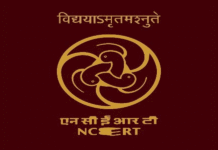A tense standoff in the Andaman and Nicobar Islands ended with a public apology on Sunday evening, after community outrage over allegedly provocative remarks made online. The controversy began when local resident Manoj Paul released a video on YouTube blaming the Muslim community, particularly settlers of Bangladeshi origin, for spreading “uncivil activities” and fostering religious hatred. The claims, made without evidence, triggered widespread resentment among islanders, leading to legal action and calls for accountability.
The Muslim community, which has long been regarded as a peaceful section of society in the islands, reacted sharply to the allegations. Leaders described the remarks as defamatory and unfounded, highlighting the absence of any proof behind the accusations. An FIR was filed, prompting legal proceedings that resulted in a court directive ordering Paul to delete the video post. While the deletion met judicial requirements, it did little to assuage the anger felt within the community.
For several days, community members pressed for a direct, personal apology, stating that a simple takedown of content was insufficient. They argued that the allegations, though removed, had already circulated widely and caused damage to community harmony. The demand for a public acknowledgement grew steadily, with meetings held in neighbourhoods and calls raised for the issue to be settled in the open.
On Sunday evening, members of the community gathered once again to push for an apology. The situation became charged as a crowd confronted Manoj Paul over his statements. To avoid escalation, police personnel and local leaders intervened, ensuring that proceedings remained under control. Under their protection and supervision, Paul offered a personal apology, retracting his earlier comments and pledging to refrain from making such allegations in future.
According to those present, the apology was accepted as a necessary step to prevent further unrest. Community elders urged those assembled to avoid taking the matter into their own hands and to allow institutional processes to handle grievances. Police officials also requested the gathering not to let emotions spiral, emphasizing that the islands’ long-standing communal peace should not be disrupted by social media controversies.
The incident has highlighted the growing challenges posed by online platforms in small communities. Allegations made without evidence can travel quickly, inflame sentiment, and force interventions by both law enforcement and community leaders. For the Andaman and Nicobar Islands, where populations are interwoven across different ethnic and religious groups, such provocations risk disturbing the fragile balance of coexistence.
Observers noted that the affair underscores the responsibility of social media users to ensure that their words do not cause harm. Authorities have previously warned that content spreading hatred or misinformation would face strict action, particularly in regions where social stability is sensitive to rumors. The filing of an FIR in this case reflects the seriousness with which local police view attempts to target communities.
For the Muslim community, the apology offered some closure, though lingering concerns remain about the damage already caused by the video. Leaders have stressed the need for vigilance against similar attempts in the future, calling for responsible use of online platforms and urging residents to maintain the tradition of peaceful coexistence in the islands.
The episode serves as a reminder that while digital platforms provide space for expression, they also amplify risks when used irresponsibly. In this instance, legal and community pressure combined to secure an apology and prevent escalation. Going forward, residents of the islands are expected to remain alert against provocative content that could disrupt harmony, with the hope that such disputes are avoided rather than managed after the fact.





